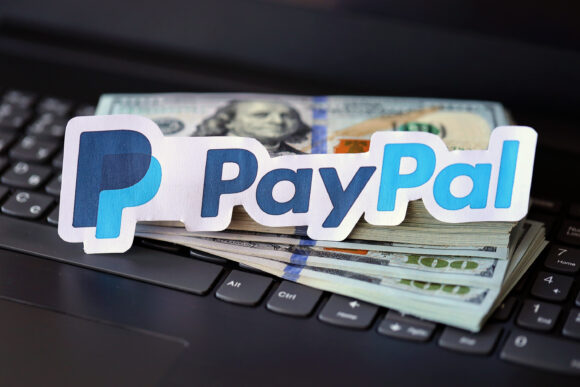A federal appellate court revived a potential class action lawsuit against PayPal filed by a disgruntled charity donor who alleges that the payments company misled her and others about how their charitable contributions would be used.
The 7th Circuit Court of Appeals on Thursday threw out a trial court ruling that affirmed an arbitrator’s finding in favor of PayPal and nonprofit corporation that it created to transmit donations to charities. The appellate panel said Terry Klass should have been given an opportunity to prove that she never agreed to terms of service that PayPal posted online in 2012 that require all disputes against it to be resolved through arbitration.
“Because Kass offered evidence that flatly denied that she received the notice from PayPal of the mandatory arbitration clause, Illinois law requires that a trier of fact decide whether she received the notice,” the panel’s opinion says.
Kass received emails from PayPal in November and December 2016 that encouraged her to support her favorite charities by sending money through its Charitable Giving Fund. PayPal promised to add 1% to each donation made through its platform during the holiday season.
Kass perused a long list of charities that she could contribute to and decided to donate a total of $3,250 to 13 nonprofit groups, including local nonprofits that served her community in Lake County, Illinois. She learned later, however, that only three of those nonprofits received her donations.
Kass says she learned that PayPal’s Giving Fund will not transmit donations to organizations that don’t have a business account with PayPal and also a PayPal Giving Fund account. When money is donated to organizations that haven’t signed up for those services, PayPal donates the money to similar organizations that have accounts, according to a lawsuit she filed in the US District Court for Northern Illinois.
In February 2017, Kass filed a putative class action lawsuit against PayPal along with several nonprofit groups. They alleged PayPal’s solicitations for charitable donations listed thousands of charities that were not signed up for PayPal accounts and could not receive the money. PayPal told donors that 100% of their funds would go to the charities of their choice, the lawsuit says, but in reality PayPal didn’t even notify charities when it received donations for them if they hadn’t paid to use its services, the suit says.
In 2018, a US District Court judge ruled that Kass’ lawsuit was subject to binding arbitration under terms of service that PayPal adopted in 2012. Kass objected, saying that she signed up for PayPal in 2004 and never consented to the new terms.
A paralegal for the company testified that the new terms were emailed to every account holder and that it would be impossible for anyone to use its platform without consenting to the new conditions. Kass insisted that she never received an email from PayPal explaining the change in terms of service.
While Kass’ was litigating her case, a group of state attorneys investigated PayPal Charitable Giving Fund. In January 2020, a group of 23 state attorneys general reached a consent agreement with the company. PayPal agreed to change its operating practices and pay $200,000 to the National Association of Attorneys General’s Charities Enforcement and Training Fund.
An arbitrator who heard Kass’ claim ruled in favor PayPal, finding that Kass had agreed to the company’s mandatory arbitration agreement when she made the donations. US District Judge Martha M. Pacold approved the arbitrator’s decision and Kass appealed.
The 7th Circuit panel, in its unpublished decision, said that Judge Pacold had misinterpreted previous rulings regarding the “mailbox rule.” In previous rulings, the 7th Circuit has ruled that judges may presume an user agreement has been read if it has been received in the user’s email inbox.
The panel said that doesn’t mean the presumption of validity applies to agreements that were sent but never received. In previous decisions, courts have ruled against plaintiffs who testified they couldn’t recall whether they received an agreement that was emailed to them. But Kass stated flatly that she never received PayPal’s email about the change in its terms of service.
The panel said the 7th Circuit itself led to the judge’s confusion because it wrote in a 2013 ruling that the mailbox rule applies to emails that are “sent.” In fact, that’s not the case. The panel said the presumption created by the mailbox rule is not conclusive unless the evidence shows that an email has been sent and received.
“Presuming that a communication was not only properly received and read but was also properly sent puts the cart,” the opinion says. “Before we may presume receipt, there must be sufficient evidence that the communication in question was sent.”
The panel vacated the District Court’s ruling and remanded the case with direction that the lower court hold a trial to resolve the question of whether Kass had received and read the email changing PayPal’s terms of service.
Was this article valuable?
Here are more articles you may enjoy.


 AI Claim Assistant Now Taking Auto Damage Claims Calls at Travelers
AI Claim Assistant Now Taking Auto Damage Claims Calls at Travelers  ‘Structural Shift’ Occurring in California Surplus Lines
‘Structural Shift’ Occurring in California Surplus Lines  Tesla’s Austin Robotaxis Report 14 Crashes in First Eight Months
Tesla’s Austin Robotaxis Report 14 Crashes in First Eight Months  When the Workplace Is Everywhere: The New Reality of Workers’ Comp Claims
When the Workplace Is Everywhere: The New Reality of Workers’ Comp Claims 